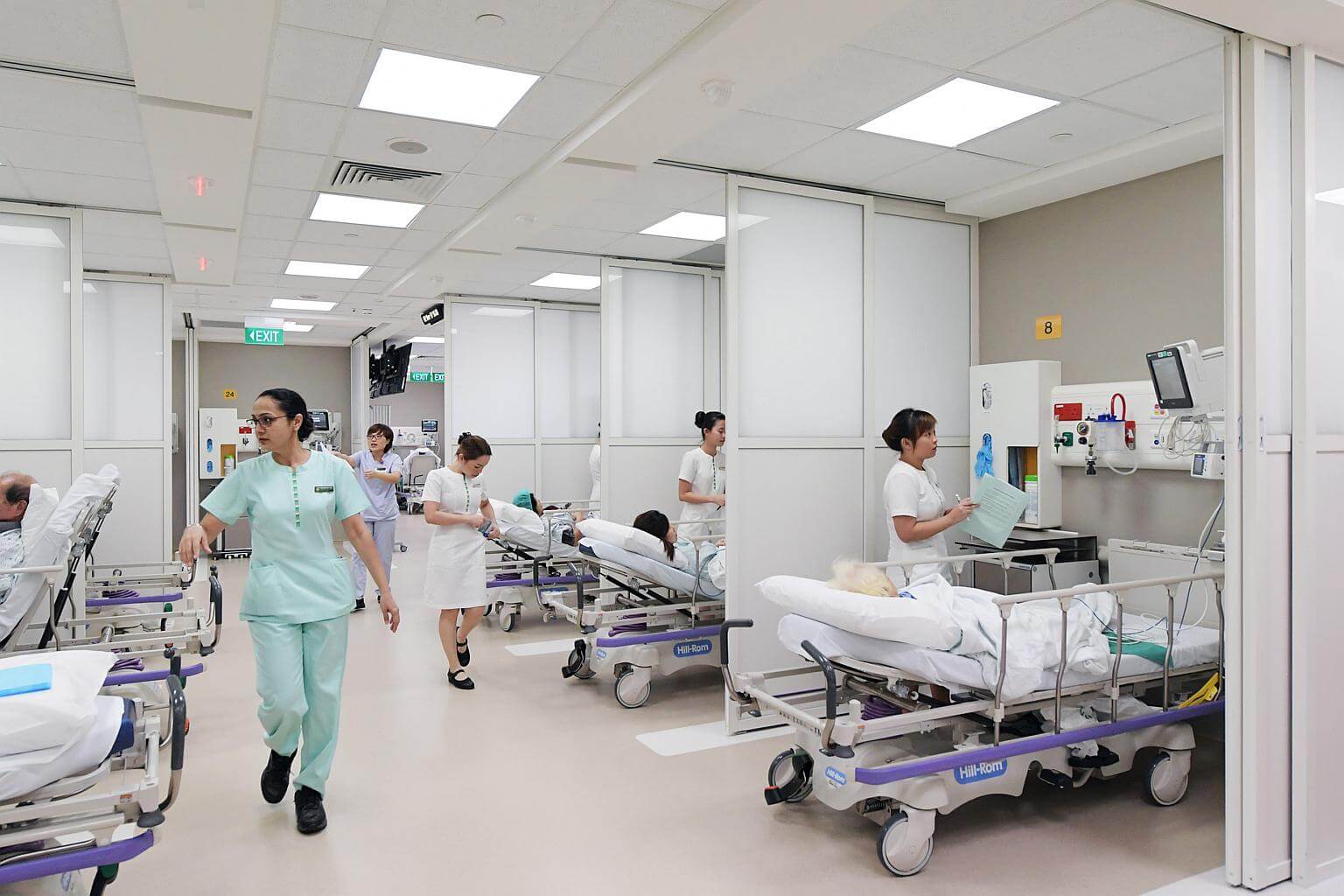ScienceTalk
Engineering the future of medicine
From personalised medicine to AI and big data, biomedical tech will be invaluable in healthcare
Sign up now: Get ST's newsletters delivered to your inbox

There is a slew of emerging technologies that are disrupting the way healthcare and medicine are being practised.
PHOTO: ST FILE
Singapore is facing a greyer future, with its accompanying health woes.
Three in five people will have contracted cancer by the time they reach 65, and diabetes is a serious concern. Health problems will put a tremendous strain on our healthcare system and infrastructure.
This is where biomedical technology can make a significant impact. There is a slew of emerging technologies that are slowly but surely disrupting the way healthcare and medicine are being practised.
For example, personalised or precision medicine is changing how patients are being diagnosed and treated, especially for diseases such as cancer. The idea is to administer the right drug to the right patient, at the right dosage and the right time.
By sequencing a cancer patient's genome, we can now better treat him by matching drugs to specific treatable mutations that this patient may be suffering from.
The genetic sequencing can be performed on circulating tumour DNA strands or cancer cells obtained from blood - which is known as a liquid biopsy.
This is less invasive and can be done more frequently than a tumour biopsy. With this technique, we can obtain real-time feedback as to the condition of the patient through frequent sampling and testing, something not possible with a highly-invasive tumour biopsy.
Trials being conducted on patients are showing promise, and liquid biopsy and precision medicine could potentially disrupt how cancer can be managed and treated.
Bioprinting is another technology that may one day solve the organ shortage problem. Imagine being able to print tissues or organs that can be specifically tailored to the needs of a particular patient.
Progress in this area is slow, however, as researchers grapple with printing cells and concocting growth factors that will not only ensure the cells survive, but also grow in the way they should, to form the proper structure so they can perform the functions of the tissues or organs needed.
Nevertheless, there are start-ups which are already making headway in bioprinting human tissue for the liver and kidney.
Another area of interest is big data. From the use of the smart phone, computer and fitness tracker to a visit to a clinic, there is unprecedented continual collection of information relating to what we do and our health.
For example, by sequencing our genetic make-up at birth, we hope to better understand as much as possible about ourselves as early as possible. This could allow us to pick up early signs of illness so we can either prevent it or treat it early.
Linked to big data is artificial intelligence (AI). A recent survey in Britain suggests people are heading towards more self-diagnosis and prefer to do an Internet search before seeing a doctor when they fall sick. I believe this is the case in Singapore, and it signals a trend of how we are soon going to interact with the doctors. This could mean fewer visits to clinics and hospitals.
There are start-ups which provide virtual consultations with doctors and healthcare professionals through text and video messaging, via a mobile app. Users can also receive their drug prescription, be referred to a specialist, or book an examination at a healthcare facility.
But AI is much more than this. It can be employed for diagnostic assistance, especially where a patient's case is complex or rare, by quickly suggesting a diagnosis based on the patient's data - as it can access all the patient's medical records and other related databases not just locally, but also around the world. In terms of sensing and monitoring, AI can warn of changes in a patient's condition in real-time as it tracks data generated from sensors that are being worn by patients.
AI can also assist doctors in terms of image screening and interpretation. This is especially since medical images obtained from X-rays to MRI scans can now be massively and rapidly analysed and interpreted. In fact, there are cases where AI can pick up details on an abnormal growth that our naked eye may not be able to see.
These emerging technologies are giving us a peek into what lies ahead for medicine and healthcare.
What is science fiction today may soon be reality. After all, it was not long ago that mobile shopping or the driverless car was unthinkable.
So, will the doctor be heading for extinction - a concern of today's retailers, taxi drivers and booksellers? I think not.
Doctors will evolve as they rely more and more on technology to help them make more accurate diagnoses and better decisions on how to treat patients. The ultimate aim of the medical technology is not to take over the role of doctors, but to allow them to do a better job.
There would be none of today's modern hospitals without the biomedical technologies being used, be it a simple thermometer or a complex X-ray machine.
A senior clinician once said to me: "A doctor can only treat one patient anywhere at any one time, but biomedical technology developed by an engineer can enable treatment of thousands of patients anywhere and at any one time."
As we face the challenges of an ageing population, biomedical technology will form an integral part of the healthcare solution.
- Professor Lim Chwee Teck is the NUS Society Professor with the Department of Biomedical Engineering as well as acting director of the Biomedical Institute for Global Health Research and Technology at the National University of Singapore. Prof Lim's research focuses on human disease mechanobiology (the relationship between cells and their environment) and the development of microfluidics for disease diagnosis and precision therapy. He also co-founded five start-up companies which commercialise technologies developed in his lab.


